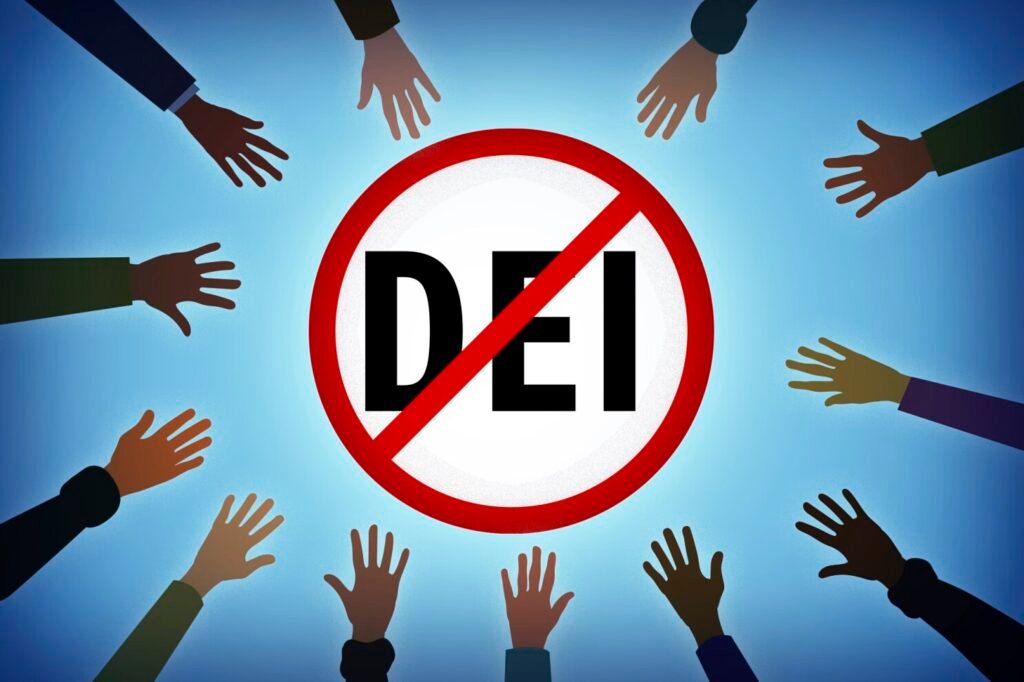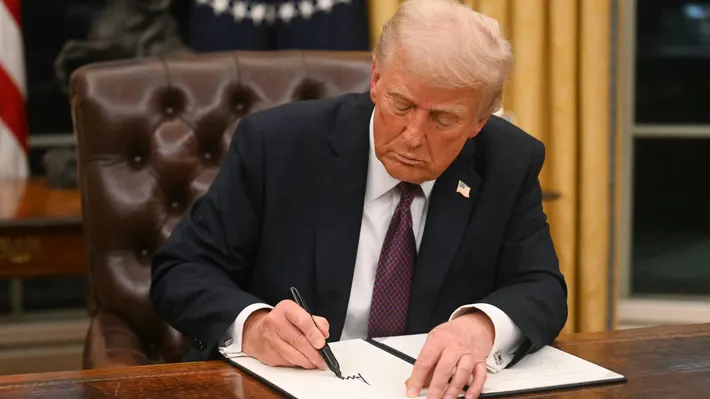Federal DEI program cancellations in January 2025 have triggered a wave of reversals across U.S. states. As the federal government officially ended diversity, equity, and inclusion initiatives in all federal agencies, several state governments began following suit, either repealing their own DEI policies or halting plans for future programs.
This major policy shift is reshaping how institutions across the country approach inclusion, hiring, education, and civil rights. While supporters argue the cancellations promote fairness and meritocracy, critics warn they risk rolling back years of progress toward equal opportunity.
Let’s break down what led to this reversal, which states are following, and what the future may hold for DEI initiatives in America.
What Were Federal DEI Programs?
Before diving into the reversals, it’s important to understand what federal DEI programs were. DEI programs were initiatives across government institutions that aimed to:
- Increase diversity in hiring and leadership
- Promote equity in access to resources and services
- Foster inclusion through training and cultural change
These programs often included mandatory training on unconscious bias, targeted recruitment for underrepresented groups, and assessments of systemic barriers within agencies.
Under Executive Order 14035 (issued in 2021), every federal agency was required to submit an annual DEI plan and appoint a Chief Diversity and Equity Officer. The goal was to make government workplaces more reflective of the country’s demographics and to ensure fair treatment for all citizens in federal programs.
Why Were Federal DEI Programs Cancelled in 2025?
The decision to end federal DEI efforts was part of a broader policy shift introduced by the new administration elected in late 2024. The administration argued that:
- DEI programs were politically biased, favoring identity over merit.
- The federal bureaucracy was overburdened by DEI-related mandates.
- Mandatory DEI training and hiring practices infringed on free speech and equal opportunity principles.
In January 2025, the White House rescinded EO 14035 and halted funding for all centralized DEI initiatives across federal departments. New guidelines were issued to eliminate DEI positions, stop identity-based data collection for workforce assessments, and prevent further implementation of “equity-based hiring.”
This policy shift aligned with campaign promises to “restore neutrality in government” and “eliminate divisive ideologies in the public sector.”
States Begin to Follow the Federal DEI Reversal

With the federal DEI program cancellations making headlines, states across the U.S. have started reassessing their own diversity policies. While some states are doubling down on DEI, others are reversing course.
Red States Lead the Rollback
Several Republican-led states quickly mirrored the federal reversal. For example:
- Florida: Governor’s office announced the dismantling of state DEI offices and removal of DEI language from state agency policies.
- Texas: The legislature passed a bill to ban DEI programs in public universities and government agencies.
- Tennessee & Oklahoma: Both states moved to eliminate race-based hiring goals and training requirements in schools and public offices.
In these states, leaders argue that DEI programs are ideological, not practical, and contribute to division rather than unity.
“We must treat people as individuals, not group identities,” said one state senator from Texas. “DEI has become a mask for discrimination.”
Impact on Higher Education
The education sector has become one of the main battlegrounds in the DEI debate. After the federal cancellations, many public universities across the country are under pressure to remove DEI mandates from admissions, hiring, and student services.
Policy Changes in Universities:
- Elimination of DEI statements in faculty hiring.
- Removal of identity-based scholarship preferences.
- Consolidation or closure of diversity offices.
Some professors and student groups argue this threatens academic freedom and inclusion, especially for marginalized students. Others say it restores focus on academic merit and intellectual diversity.
Corporate America Takes Note
Although the federal government’s reach into the private sector is limited, corporate DEI programs are also feeling the heat. With the rollback of federal guidance, some companies are reducing or restructuring their diversity initiatives to avoid political backlash or lawsuits.
Observed Trends in Businesses:
- Reduction in DEI staff or budgets.
- Rebranding of DEI roles to “People & Culture” or “Employee Experience.”
- More emphasis on “inclusion for all” rather than specific identity groups.
Still, many corporations remain committed to DEI, especially those in technology, finance, and media sectors. They argue diversity is not just an ethical choice but also a business advantage.
The Pushback: Civil Rights Groups Respond
The reversal has not gone unchallenged. Civil rights groups, advocacy organizations, and several state legislatures have condemned the federal DEI program cancellations and the growing state-level repeals.
Key Concerns Raised:
- Marginalized communities may face increased barriers in public services.
- Lack of representation in leadership could widen trust gaps in institutions.
- The move ignores the legacy of discrimination still affecting millions.
Groups like the NAACP and ACLU are exploring legal avenues to challenge DEI bans, especially where they intersect with equal opportunity laws or civil rights protections.
A Divided Nation on Inclusion
The cancellation of federal DEI programs has laid bare deep ideological divides across the country. On one side are those who believe equality means treating everyone the same, regardless of background. On the other are those who argue that true equality requires active steps to address systemic gaps.
As the 2025 midterms approach, DEI is expected to remain a central topic of debate. Voters, politicians, and public institutions will continue to wrestle with these questions:
- How should diversity be defined in a free society?
- Is inclusion a social value or a political agenda?
- What role should government play in shaping equitable outcomes?
The Future of DEI in America

While federal DEI program cancellations have changed the national landscape, it’s unlikely that DEI efforts will disappear completely. In fact, the reversal may trigger a new wave of grassroots movements, particularly in states or communities that value inclusion.
Possible Future Developments:
- States with progressive leadership may increase local DEI funding to counter federal and red-state pullbacks.
- Nonprofits and educational institutions may step in to fill the DEI gap through private funding and community engagement.
- Legal battles may set new precedents on what kind of DEI policies are constitutionally protected.
Final Thoughts
The cancellation of federal DEI programs in January 2025 marks a turning point in America’s approach to diversity, equity, and inclusion. For some, it’s a long-overdue correction that restores fairness and meritocracy. For others, it’s a dangerous rollback that may erode the progress made toward a more just society.
As states follow the federal lead in reversing DEI efforts, the country is entering a new chapter—one where the definition of equity and the methods to achieve it are hotly contested.
What’s clear is that the conversation around DEI is far from over. It’s now up to each community, institution, and individual to decide what inclusion means and how it should shape the future of the United States.
Read Next – Money in Politics Seen as Major Problem by 78% of Americans






